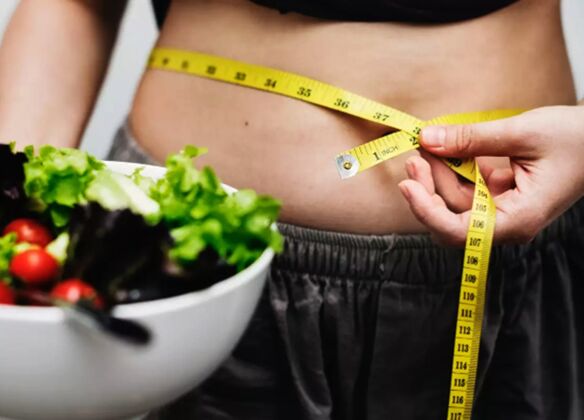
What is the protein, fat and carbohydrate content of the products? Of course, for those who follow any diet. Thus, people who choose the low-carb option first of all point out that the amount of carbohydrates in the product does not exceed a certain amount.
Who needs a low carb diet and why?
Such a diet is the reduction or complete rejection of carbohydrate-rich foods. The diet was originally designed for athletes. Now such food is most often consumed by 3 categories of people:
- Those who want to lose weight.
- Diabetics.
- The athletes themselves.
Carbohydrates in foods contain sugar. It doesn’t matter that some foods that are high in carbs are not sweet at all. When processed in the body, all carbohydrates become sugar. That’s why diabetics, people with high blood sugar, follow a carb-free diet.
In addition, scientists have shown that it is the excess sugar in food that is deposited in the human body in the form of fat. Therefore, those who want to lose weight also follow a low-carbohydrate diet. Athletes just need to stay in good shape. Other low carb names are ketone or protein regimens.

By eating a low-carbohydrate diet, people reduce their intake or eliminate from the diet:
- Pastries.
- Sugar and any confectionery.
- Some vegetables: potatoes, pumpkins.
- Sweet fruits: bananas, apricots and berries: cherries, grapes.
- Keep the juice.
- Some cereals: rice.
- Pasta.
And this is not an exhaustive list. But does everyone need a similar diet? After all, each has its advantages and disadvantages.
The benefits of diet
Nutritionists and general practitioners recommend applying a low-carb diet not only to people who are losing weight and are sick. You can also limit the consumption of carbohydrates for normal unloading. But in general, such a diet has many advantages:
- Body support. Everyone, not just a sick person, should stay healthy because excess carbs act like a slow bomb. Constant overeating of carbohydrate foods gradually destroys the body.
- Adhering to a low-carbohydrate diet increases the body's sensitivity to insulin, causing the pancreas to produce less insulin. This helps to prevent an incurable disease - diabetes. Therefore, a big plus of the diet is the prevention of serious illness.
- For those who lose weight, the plus is that you can eat plenty of foods without carbs and still lose weight. Some people find it difficult to limit their food intake, so eating without carbs is a great way out. For example, meat does not contain carbohydrates.
- You can lose weight in a short time.
- Foods that are low in carbs do not need to go to a specialty store or buy something special. All the food is sold in simple supermarkets near the house in any town or village: I got it and bought it.
- Issue price. Adhering to a diet does not require a lot of money. You buy the usual healthy products you are already used to: meat, fish, vegetables, dairy products. On the contrary, if you give up some sweets, you will even save.
- Even a low-carb menu is easy to find online. There is a lot of information with tables, recipes and other useful tips. You don’t have to think about who and how it is. And even more - visit nutritionists to make a diet. Just download and print your daily diet.
- You can follow this diet for a very long time. Over time, the craving for sweets will disappear, and after a few years, normal doses of sugar will look sweet.
- Such a diet is considered the easiest and "gentlest", unlike some others. If everything is done right, then the body will not be stressed and will be avoided flaws.

Minus
It is not for nothing that students are advised to eat a bar of chocolate before the exam. Sugar is energy, and sweets are a quick way to get it. Therefore, a low carb diet is not good for everyone. Some people should keep in mind their nutritional deficiencies and avoid a low carb diet.
- Workers with intense mental or physical work should not be fascinated by such a diet. Both need the same energy that a person does not get without carbohydrates.
- Diabetics, while supposed to limit their carbohydrate intake, should be aware that complete absence of blood sugar can lead to hypoglycemia, which is very dangerous.
- It is also worth avoiding such a diet for those who suffer from frequent edema. It is recommended to drink plenty of water on a low carb diet, and this will further increase swelling.
- You cannot follow this diet for children and adolescents (except those who are obese). The body needs a normal amount of carbohydrates to develop during growth, not low.
- Pregnant women and nursing mothers do not follow a diet. You may want to lose weight after giving birth, but your baby’s health and development are more important.
- By following a low carb diet, a person eats more protein and fat. This is detrimental to patients with heart and kidney disease. Renal stone disease has been reported with diet.
- Sometimes the regimen is accompanied by headaches and constipation. If you experience these side effects, you should stop eating foods that are low in carbohydrates.
- Following a low-carbohydrate diet, when sugar foods are restricted, the craving for them becomes very strong. Not everyone can withstand this craving, so they fail, and all the benefits of the diet fall into the sewers.
- For drowsiness at the beginning of the diet, drivers and people in charge of important items should be careful.
The result
Any diet, including a low-carb diet, is stressful for the body, so you should not abruptly give up sugary foods. The transition to a carb-free diet requires a smooth monitoring of your reaction. Only in this case will the diet have certain advantages and it will be possible to avoid all the disadvantages listed. It’s worth trying to find out if a low-carb regimen is right for you.
















































































